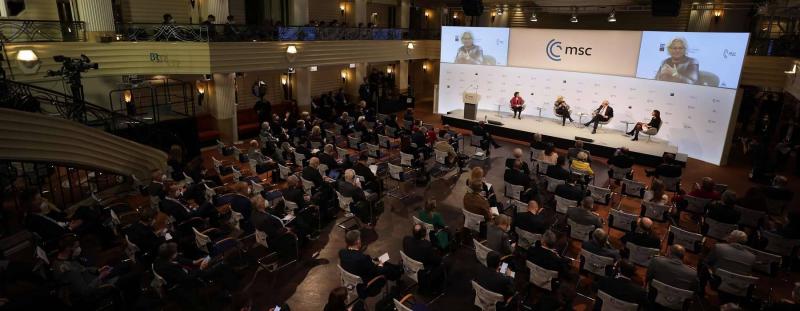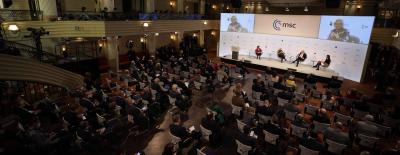The President of the Munich Security Conference, Christoph Heusgen, announced on Monday that Israeli President Isaac Herzog and Palestinian Prime Minister Mohammad Shtayyeh are among hundreds of high-level officials scheduled to attend the conference this week. The conference is taking place as the war in Gaza between Israel and the Palestinian Islamic resistance movement (Hamas) enters its fifth month, with over 28,000 Palestinians and approximately 1,430 Israelis killed, with no end in sight.
It is still unclear whether Shtayyeh and Herzog will meet. Heusgen stated that the war between Israel and Hamas, the Russian invasion of Ukraine, and conflicts in the Horn of Africa will dominate the conference, which will be held in Munich, southern Germany, from Friday to Sunday, attended by a select group of global defense and security officials.
He added that one of the key topics to be discussed will be the future of NATO and European defense. Former U.S. President Donald Trump had stirred anger within NATO and Europe by suggesting that the United States might not protect members of the alliance who do not invest enough in defense from a potential Russian invasion.
In a press conference, Heusgen said, "We certainly do not want to paint a bleak picture, but instead, we will look for light on the horizon." One of the events at the conference will host Israeli hostages recently freed from Hamas captivity, as well as relatives of hostages still held by the group in Gaza.
Heusgen explained that UN Secretary-General Antonio Guterres will open the conference, and other attendees will include U.S. Secretary of State Antony Blinken, U.S. Vice President Kamala Harris, Chinese Foreign Minister Wang Yi, German Chancellor Olaf Scholz, European Commission President Ursula von der Leyen, and the leaders of Lebanon, Qatar, and Iraq.
Foreign ministers from the Group of Seven (G7) will hold a meeting on the sidelines of the conference. Tobias Bunde, head of policy and analysis at the Munich Security Conference report, stated that the report highlights a high level of pessimism among Western nations regarding their security and prosperity outlook.
For instance, nearly half of German citizens believe their country will be less secure and affluent in ten years. Bunde noted, "This is in stark contrast to countries like China and India, where the majority are markedly more optimistic.” He added, "In many Western societies, there is a prevailing sentiment that the gains from globalization are distributed unjustly and that the current global system cannot meet their expectations.” This, in turn, dampens the desire for international cooperation on issues such as climate change.
The Munich Security Conference is organizing 60 events featuring 250 speakers, with 27 percent of them from the Global South, the highest percentage in the conference's history.




